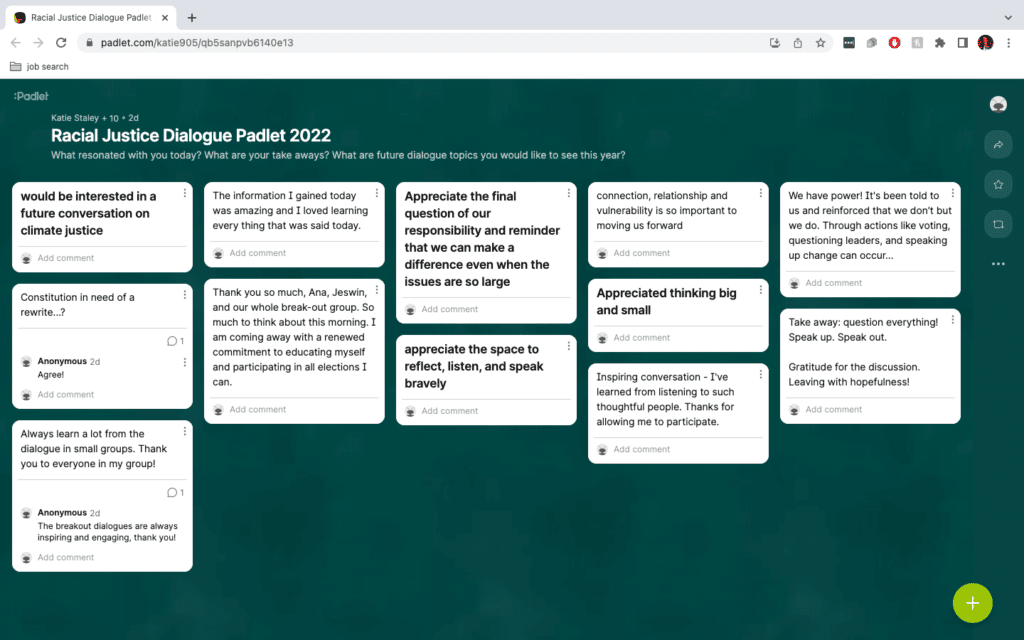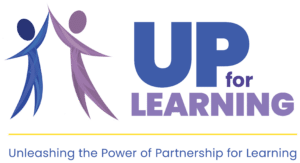First Racial Justice Dialogue of the Year
High school youth facilitators from Harwood High School in Vermont and Piney Woods School in Mississippi kicked off year three of their Racial Justice Dialogue series this past week! Each month during the school year, youth and adults are invited to gather for an hour-long learning and dialogue about a topic connected to racial justice.
A few weeks ago, the youth facilitators met to brainstorm ideas for the focus of the first dialogue, and what rose to the top was the recent Supreme Court decision striking down reproductive rights at the national level, the overall power of the judicial branch, and what the ruling means for civil rights going forward. The facilitators then set about researching the topic to provide content and context, and coming up with discussion questions for breakout sessions.
Over twenty participants took part in the virtual dialogue, including many adults who work in education and other community organizations. During the event, the youth facilitators shared information about previous Supreme Court cases that established civil rights in our country, including Brown vs. Board of Education in 1954, which made racial segregation of schools illegal, and Loving vs. Virginia, in 1967, which established the right to interracial marriage. The discussion questions included, “Why would people seek to limit others’ rights?” and “What happens when the court doesn’t represent the views of the majority of the country?” Within break-out rooms, participants engaged in vibrant discussions about the original purpose and role of the Court, and how we as citizens can get our voices heard on the issues we care about.
At the close of the event, the youth facilitators asked participants to share their takeaways and feedback on a Padlet. One participant wrote that they “appreciate[d] the space to reflect, listen, and speak bravely,” and another shared, “We have power! It’s been told to us and reinforced that we don’t but we do. Through actions like voting, questioning leaders, and speaking up, change can occur.” The youth facilitators also asked the group for ideas as to which topics they would like to see explored this year, and one of the suggestions was for a dialogue focused on the intersection between racial and environmental justice. The next Racial Justice Dialogue is scheduled for Wednesday, October 19th, 9:30-10:45am (EST), and we hope that you will register for these rich and inspiring conversations!
By Christie Howell


